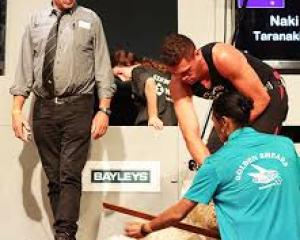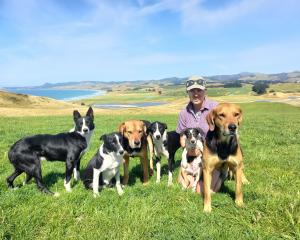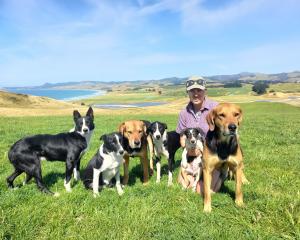
She talks to Shawn McAvinue about her reasons for selling, taking over Pendella in her 20s, and the highs and lows of growing a superfine wool sheep breed.
A stalwart of breeding a pure traditional superfine-wool merino sheep on the Maniototo is calling time.
Pendella Farm owner Angela Scott will sell her sheep on the family farm in Gimmerburn next month.
Her family have been breeding Saxon merinos for more than 50 years.
She runs the nearly 500ha Pendella Farm by herself and has put it on the market, saying it was "time to go". Neither of her children, son Jesse and daughter Ella, wanted to be farmers.

"Maybe we will make the 100 years," she said.
Her retirement plans included travelling to Eastern Europe, North Africa and Saudi Arabia.
Her great-grandparents, James Scott and Mary Gall, emigrated from Glasgow in 1879 and settled at Diamond Hill Farm in Gimmerburn.
Their second-eldest son, James, Ms Scott’s grandfather, settled on Idaburn Farm in Oturehua.
Hanging in her living room is a painting of a two-bedroom house where her grandfather and her grandmother Jessie (nee Grant) raised their family.
Her grandfather bought Pendella Farm from the Roberts family in 1927.

Bob took over running Pendella in his early 20s when his father died of a heart attack in 1953, age 63.
He established a Saxon merino stud in 1970 after travelling to Tasmania to buy ewes and rams to import to Pendella.
Ms Scott’s mother, Jenny, was a mainstay on the farm, feeding workers and raising a family.
Her father was a pioneer of using artificial insemination in his breeding programme, she said.
Ms Scott inherited her father’s passion for breeding Saxon merinos.
History repeated when Bob died, age 64 and Angela, also the youngest of her siblings, took over the farm at 27.

"There wasn’t too much I didn’t know at 27. Now I know what I didn’t know."
After finishing at Columba College in Dunedin, she studied wool classing at Massey University in Palmerston North and worked in Upper Clutha.
"I used to charge 17 cents a fleece when I started and I thought I was made," she recalled.
In the off season, she classed wool in Australia before returning home to run Pendella.
Running Saxon merinos on flat terrain was unusual, she said.
"I love those sheep and this is where I happen to be farming and they’ve done me well."
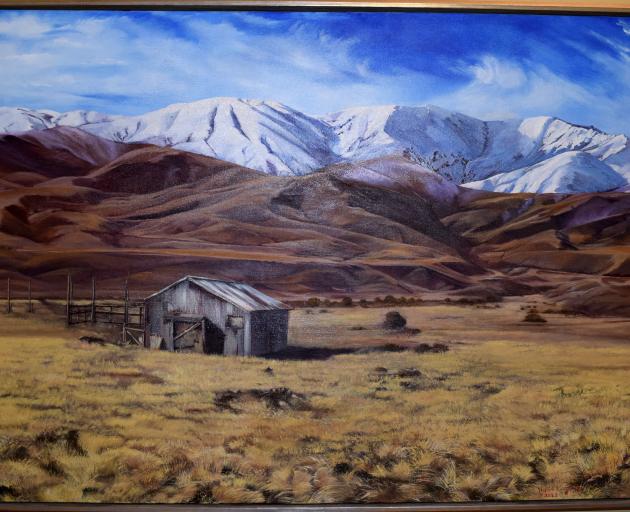
About the same time, a snowstorm hit in August, killing hundreds of freshly shorn ewes.
"I remember trying to save sheep from hypothermia and it was just awful."
To avoid a repeat, a new four-stand shearing shed and covered yards was built for $75,000, an investment made possible by the high wool price.
Then the price of wool collapsed.
She was paid $90 per kg clean in 1989 — and then, about two years later, it dropped to a low of about $10 a kg, which was "pretty hard to farm to".
The work required to produce quality wool was the same each year, whatever the price.

"It is how they are managed.
"If people aren’t going to feed a sheep, it isn’t going to grow very big. If you put it on top of a hill without any food, what do you expect?"
As she enjoyed breeding sheep more than selling them, she deregistered the stud about 20 years ago.
"I hate selling animals; I can’t think of anything worse."
That was the reason she was holding her upcoming sheep sale online through auction platform Bidr on March 11.
She supplies purebred Saxon wool to textile manufacturer Escorial in Canterbury.
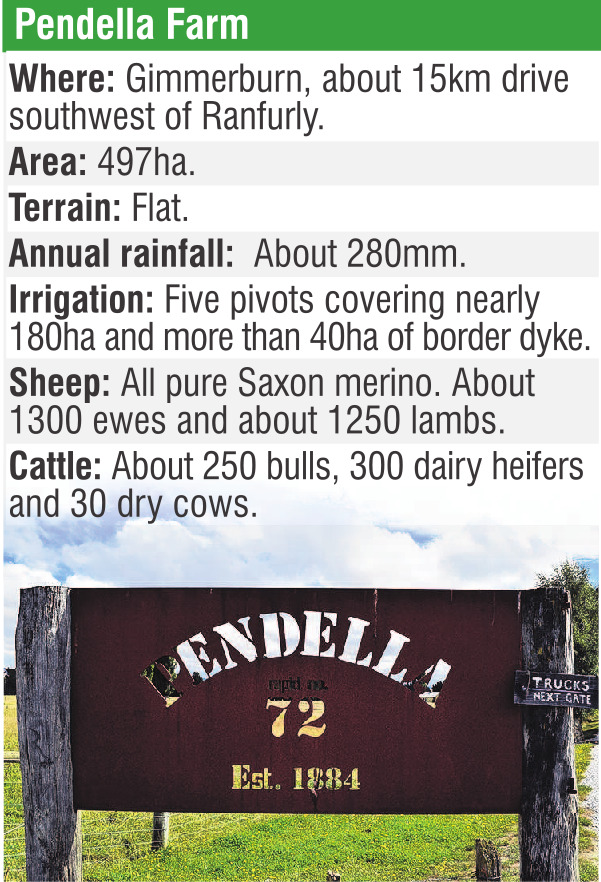
Many people had helped her during her career, including vets Chris Mulvaney and Adrian Campbell.
"They are people who have been instrumental in helping me on my way," she said.
Career highlights included being an Otago finalist in the 2020 Farm Environment Awards and Hollywood actor Brad Pitt wearing an Escorial suit when he presented an award at the Oscars about two years ago.
As there were only six farmers in New Zealand supplying Escorial, there was a good chance Mr Pitt’s suit was made from wool from her flock.
"That was a real high point," she said.







